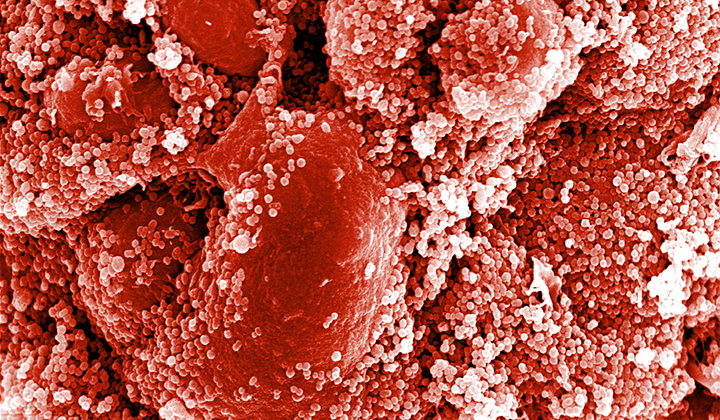
Basic science research
Basic, or bench, research uncovers the foundational knowledge needed to make advancements in the diagnosis, treatment and prevention of diseases, including cancer, to further investigate innovative cures and newer, more effective treatment options.
Researchers take existing knowledge and apply it in new ways, as well as investigate the cellular and molecular mechanisms behind how cancer develops and spreads. Building on our fundamental understanding of how cancer works fuels discoveries and better therapies.
Basic science research taking place within The University of Kansas Cancer Center's Cancer Biology research program spans many disciplines, including:
- Cellular and molecular biology
- Immunology
- Genetics and genomics
- Biochemistry
- Systems biology
- Physiology omics: genomics, proteomics, metabolomics
- Structural biology
Translational research
Translational research helps facilitate the movement of new ideas, research and treatments from the laboratory to the clinic, and helps bridge the gap between knowledge produced in the laboratory and its use in clinical practice. Broadly defined, translational research seeks to turn scientific discoveries into actionable outputs that hold the key to therapeutic progress in oncology.
The University of Kansas Cancer Center’s Drug Discovery, Delivery and Experimental Therapeutics research program draws on laboratory and clinical trial findings to accelerate the development of improved therapies and diagnostics to reduce the burden of cancer. In addition, cancer researchers partner with Frontiers and the Institute for Advancing Medical Innovation (IAMI) to advance research discoveries to the patient bedside.
Clinical research
Humans are at the heart of all clinical research, which aims to improve knowledge, diagnosis, prevention and treatment of diseases. At The University of Kansas Cancer Center, clinicians and researchers conduct clinical trials to find new ways to better detect and treat cancer and improve quality of life for patients.
A clinical trial is a type of clinical research study, designed to answer specific questions about possible new treatments or new ways of using existing treatments. Clinical trials determine whether new drugs or treatments are safe and effective and are part of a long, careful evaluation process that may take many years to complete. There are several phases in the clinical trial process as researchers seek to further understand if and how treatments work.
Clinical trials are often conducted in partnership with pharmaceutical companies, but cancer researchers with ideas can design and initiate clinical trials as well. This is called an Investigator-Initiated Trial, or IIT.
The goal of an IIT is not always to test a new therapy. Rather, an IIT seeks to find new or revised applications for already-approved products, and can expand product knowledge, including safety. IITs are a niche academic area, and it takes a complex support system to execute the study conception, quality control and quality assurance, design and data analysis and interpretation.
The results, learnings and outcomes of today’s clinical trials directly impact tomorrow’s standard of care and the future of cancer prevention, diagnosis and treatment.
Prevention research
Studies that have helped define how cancer develops and identified factors that can influence cancer risk are paving the way for important advances in cancer prevention. Based on this knowledge, researchers are testing new approaches to prevent cancer, and with the incidence of cancer increasing, there is a compelling case for continued improvements in cancer prevention.
Cancer prevention research focuses on developing and testing preventive interventions, expanding the understanding of the biological processes through which cancer develops, studying ways to reduce cancer risk and disseminating preventive interventions.
At The University of Kansas Cancer Center, the Cancer Prevention and Control research program seeks to identify new ways to prevent cancer and improve cancer outcomes, with a focus on high-risk and underserved communities in our catchment area.
Learn more
Ask about our clinical trials.
Clinical trials can help you learn more about your options. Search clinical trials available at our cancer center. Call 913-945-7552 or email ctnursenav@kumc.edu.